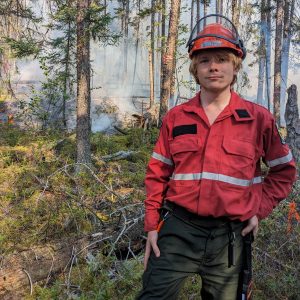Luke Richardson-foulger
|
Profile Display Name:
|
Luke Richardson-foulger |
|
E-mail Address:
|
|
|
Start Year
|
2022 (Cohort 9) |
|
Research interests:
|
Wildfires, Peatlands, Carbon Sequestration, Climate Change, Remote Sensing, Ecosystem Dynamics, Machine Learning, Image Processing, Bayesian Modelling |
|
Hobbies and interests:
|
|
|
PhD Title
|
High Latitude Peatland Fires and their Greenhouse Gas Emissions. |
|
Research Theme
|
Environmental Physics and Mathematical Modelling |
|
Primary Supervisor
|
 |
|
Primary Institution
|
|
|
Secondary Supervisor
|
 |
|
Secondary Institution
|
|
|
Abstract
|
Peatlands are the world’s largest store of terrestrial carbon, an equivalent of ∼ 2/3 of the carbon in the The project will explore how different remote sensing products can identify and map the extent of peatland |
|
Policy Impact
|
|
|
Background Reading
|
|
|
Collaborators
|
Canadian Forest Service (CFS) |
|
Publications
|
None |
|
Conferences and Workshops
|
|
|
Training courses
|
|
|
University Departmental Website:
|
|
|
Personal Website:
|
|
|
Facebook:
|
|
|
Twitter:
|
|
|
ResearchGate:
|
|
|
LinkedIn:
|
|
|
ORCID:
|


